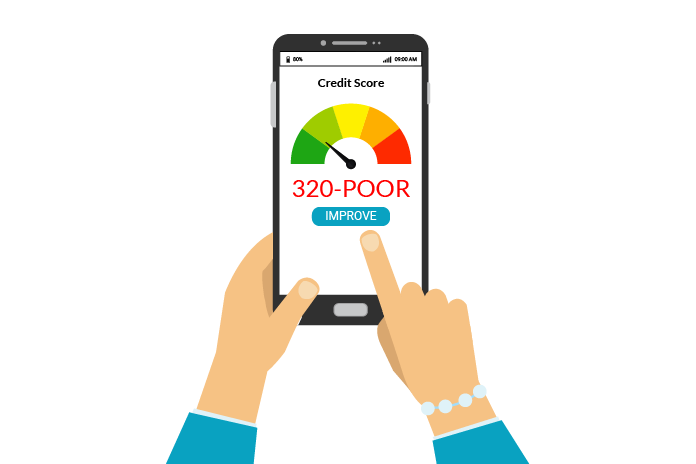A credit score indicates your ability to manage and repay debts, playing a crucial role in securing new credit cards, car loans, and personal loans. Since your credit score reflects how reliably you’ve paid bills and managed credit in the past, lenders use it to assess the risk of lending you money.
If you’re considering buying a home in the UAE, or if you are looking to take out a loan or credit card or any secured loan your credit score is especially critical, as it significantly impacts your mortgage eligibility. A higher credit score can unlock better interest rates and loan terms, saving you a considerable amount of money over the life of the loan.
In this article, we will explain in detail what a credit score is, how to check your credit score mistakes that you should avoid for good credit score and reporting errors on credit score. So, let’s get started and take control of your financial future!
Understanding Credit Score
A credit score is a 3-digit number (300-900) used by banks and lenders to assess your debt repayment likelihood, based on data from UAE banks and credit institutions.
Your credit report includes credit limits, outstanding payments, and payment history (missed payments, returned checks).
A high credit score demonstrates a strong history of repaying loans, increasing the likelihood of bank approvals for mortgages, car loans, personal loans, and credit cards.
Conversely, a low credit score may classify you as a high-risk borrower, reducing your chances of loan approval.
Calculation of Credit Score
Credit scoring in the UAE follows global standards, assessing creditworthiness to predict the risk of non-payment. Your score is mainly based on your payment history.
The Al Etihad Credit Bureau (AECB) issues credit reports and scores in Dubai. The AECB gathers data from various sources and uses an algorithm to predict payment behavior within the next 12 months, which is then presented as a three-digit credit score.
Several factors affect your credit score:
*Paying your debts on time?
* Paying the full amount due?
* Not having any returned checks?
How to check your credit score?
You can check your credit score in the UAE by accessing your credit report and score online through the Al Etihad Credit Bureau (AECB) website (www.aecb.gov.ae).
Another convenient option is to download the AECB app, which is available on both Google Play and the App Store.
Click here for Living Without A Credit Score is Possible – But Is It Wise?
Checking Credit score using the AECB Website:
- Visit AECB website at www.aecb.gov.ae.
- Next you should register for an account
- You should provide your Emirates ID along with the required information
- After that you should pay a nominal fee for purchasing the credit score.
Checking credit score using the AECB App
- Just Download the AECB app from the iOS or Google Play Store
- Next log in to the account by scanning your Emirates ID
- You will be provided with an option to select the credit report
- Select credit report option
- Pay the nominal and you can download the credit score report on your mobile
Why should you check the credit score?
A credit score plays a significant role in many aspects of your financial life, from securing loans to renting an apartment.
Checking your score a few months in advance can give you time to resolve any issues that might be lowering it, such as errors on your credit report or outstanding debts. This can improve your chances of getting approved for the credit you need at the best possible rates.
Click here for Credit card utilisation – Impact on credit score
Mistakes to avoid for good credit score
*Avoid Missing payments, or making them late
* Avoid Bouncing checks
* Avoid Having many credit lines open
* Avoid Maxing out your credit cards
Errors in your credit score?
Here is the guidance on how to address inaccuracies in your credit report, specifically regarding lines of credit and incorrect entries.
If you have successfully cleared a line of credit, but it is still showing as outstanding on your credit report, it is essential to promptly address this discrepancy with the concerned bank.
By doing so, you can ensure the credit report accurately reflects your current financial standing.
In situations where there are entries on your credit report that do not relate to you, it is recommended to reach out to the relevant data provider to request the removal of the incorrect information.
This will help maintain the integrity of your credit report and prevent any potential issues in the future.
Take away
A credit score of 580 or higher is generally required to qualify for a personal loan in the UAE. Keep monitoring your credit score and report any discrepancies so that you have a good credit score and you will be eligible for getting financial credit offers.

